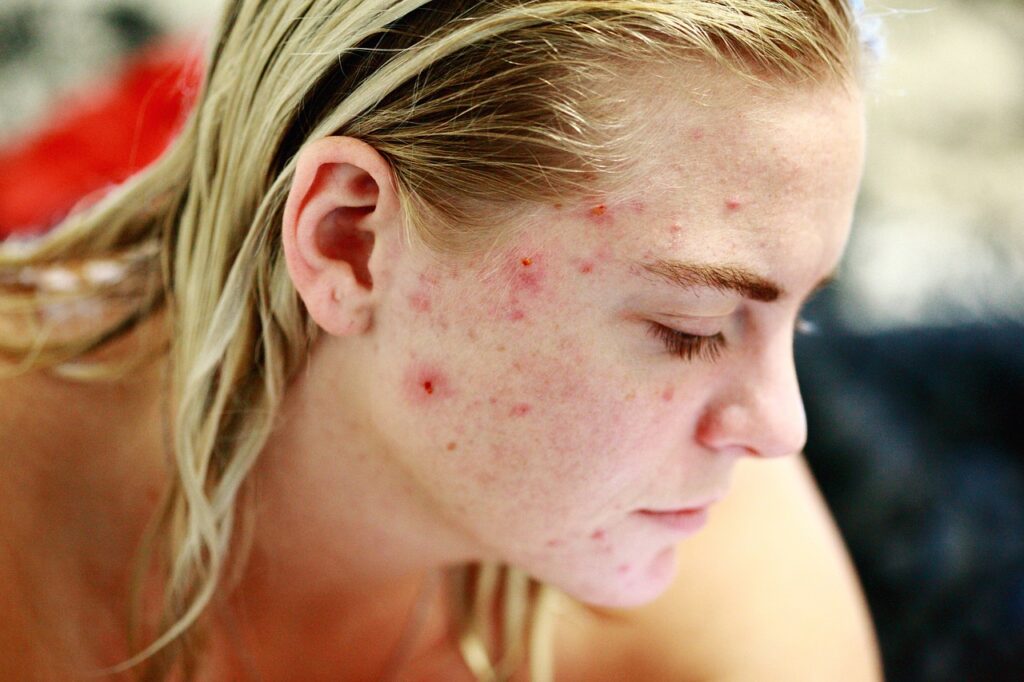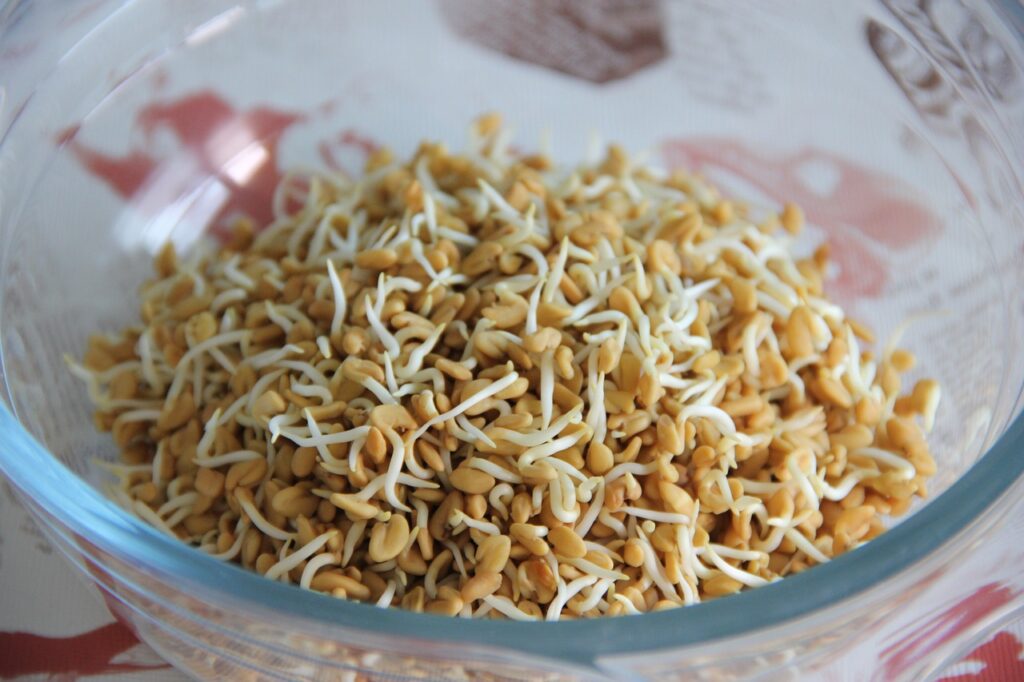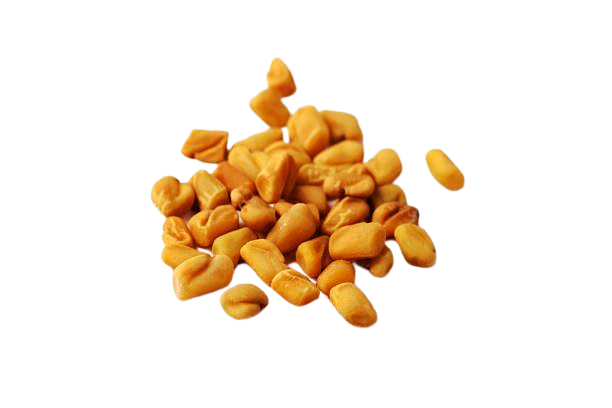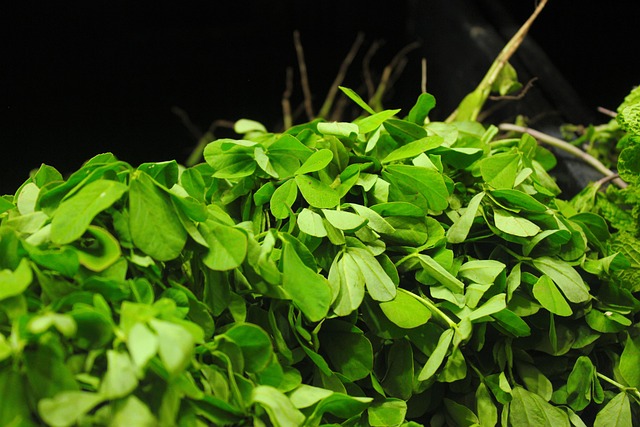Introduction: Pimples can be a major source of frustration for many individuals, affecting their self-confidence and overall well-being. While there are numerous commercial products available in the market, natural remedies offer a safe and effective solution for those seeking to remove pimples permanently. In this article, we will explore various natural methods, lifestyle changes, and skincare practices that can help you eliminate pimples naturally and achieve long-lasting results.
Understanding Pimples: Pimples, also known as acne, occur when hair follicles become clogged with oil, dead skin cells, and bacteria. They often appear as red bumps, whiteheads, blackheads, or pus-filled lesions. Understanding the causes and types of pimples is essential to effectively treating and preventing them.
Pimples, also known as acne, are a common skin condition that affects people of all ages. To effectively treat and prevent pimples, it’s important to have a clear understanding of their causes, types, and factors that contribute to their development.
Causes of Pimples:
- Excess Sebum Production: Sebaceous glands produce an oily substance called sebum, which helps keep the skin moisturized. However, excessive sebum production can lead to clogged pores, resulting in the formation of pimples.
- Dead Skin Cells: The outer layer of the skin continuously sheds dead skin cells. When these cells mix with excess sebum, they can clog pores and contribute to pimple formation.
- Bacteria: Propionibacterium acnes (P. acnes) is a bacterium that naturally resides on the skin. When the pores become clogged, P. acnes can multiply rapidly, leading to inflammation and the development of pimples.
Types of Pimples:
- Whiteheads: Closed comedones that form when a pore becomes blocked with sebum and dead skin cells. They appear as small, white bumps under the skin.
- Blackheads: Open comedones that occur when a pore becomes partially blocked, allowing the trapped sebum and dead skin cells to oxidize, resulting in a black or dark appearance.
- Papules: Small, red, raised bumps that develop when there is inflammation around a blocked pore.
- Pustules: Similar to papules but filled with pus. They are characterized by a visible white or yellow center.
- Nodules: Large, painful, solid pimples that form deep beneath the skin. They result from the buildup of bacteria, sebum, and dead skin cells.
- Cysts: Deep, pus-filled, painful lesions that are larger than nodules. Cysts can lead to scarring and are the most severe form of acne.
Factors Contributing to Pimple Development:
- Hormonal Changes: Hormonal fluctuations, such as those during puberty, menstruation, pregnancy, or hormonal disorders, can increase sebum production and contribute to pimple formation.
- Genetics: A family history of acne can increase the likelihood of developing pimples.
- Poor Skincare Habits: Inadequate cleansing, excessive scrubbing, using harsh products, or failing to remove makeup can contribute to pore clogging and acne.
- Diet: Some studies suggest that consuming a diet high in processed foods, refined sugars, and dairy products may worsen acne symptoms in certain individuals.
- Stress: Chronic stress can trigger hormonal imbalances and increase sebum production, potentially leading to pimples.
By understanding the causes, types, and contributing factors of pimples, individuals can take targeted measures to prevent and treat them effectively. The subsequent sections of this article will delve into maintaining a healthy lifestyle, establishing a proper skincare routine, utilizing natural remedies, and incorporating a balanced diet to remove pimples naturally and permanently.
A. Maintaining a Healthy Lifestyle:
A healthy lifestyle plays a crucial role in preventing and reducing the occurrence of pimples. Adequate sleep, regular exercise, stress management, and avoiding smoking and excessive alcohol consumption are essential for maintaining healthy skin.
By adopting certain habits and making positive changes, you can improve your overall well-being and promote healthier skin. Here are key factors to consider for maintaining a healthy lifestyle:
- Adequate Sleep: Getting enough sleep is essential for overall health, including skin health. Lack of sleep can lead to increased stress levels, hormonal imbalances, and inflammation, which can contribute to the development of pimples. Aim for 7-9 hours of quality sleep each night to allow your body to repair and rejuvenate.
- Regular Exercise: Engaging in regular physical activity benefits your skin by improving blood circulation and reducing stress. Exercise helps flush out toxins from the body and promotes a healthy, radiant complexion. Aim for at least 30 minutes of moderate-intensity exercise, such as brisk walking, jogging, or cycling, most days of the week.
- Stress Management: Chronic stress can trigger hormonal imbalances, leading to increased sebum production and inflammation, both of which can contribute to pimples. Find healthy ways to manage stress, such as practicing mindfulness meditation, deep breathing exercises, yoga, or engaging in hobbies that you enjoy. Adequate sleep, regular exercise, and a balanced lifestyle can also help in reducing stress levels.
- Avoid Smoking and Excessive Alcohol Consumption: Smoking and excessive alcohol consumption can have detrimental effects on your skin. Smoking reduces blood flow to the skin, depletes essential nutrients, and damages collagen and elastin fibers, leading to premature aging and a higher risk of pimples. Excessive alcohol intake can dehydrate the skin and disrupt hormonal balance. Limit or avoid smoking altogether, and consume alcohol in moderation.
- Personal Hygiene: Maintaining good personal hygiene is essential for preventing the buildup of dirt, oil, and bacteria that can contribute to pimples. Wash your face twice a day using a mild, non-comedogenic cleanser to remove impurities. Avoid overwashing or scrubbing vigorously, as this can irritate the skin and strip away natural oils, leading to increased sebum production. Use clean towels and avoid touching your face with unwashed hands.
- Avoid Excessive Sun Exposure: While sunlight can have some positive effects on the skin, excessive exposure to ultraviolet (UV) rays can cause skin damage and inflammation, leading to an increased risk of pimples. Protect your skin by applying a broad-spectrum sunscreen with a minimum SPF of 30, even on cloudy days. Wear protective clothing, such as hats and sunglasses, and seek shade during peak sun hours.
- Maintain a Healthy Diet: What you eat can directly impact your skin health. Opt for a well-balanced diet rich in fruits, vegetables, whole grains, lean proteins, and healthy fats. These foods provide essential vitamins, minerals, antioxidants, and fiber that support skin health and help reduce inflammation. Avoid excessive consumption of processed foods, sugary snacks, and greasy fast food, as they may exacerbate acne symptoms in some individuals.
Remember, maintaining a healthy lifestyle is a holistic approach that benefits your entire body, including your skin. By incorporating these habits into your daily routine, you can promote clear, glowing skin and reduce the occurrence of pimples.
B. Proper Skincare Routine:
Developing a consistent skincare routine can significantly help in removing pimples. This section will cover cleansing, exfoliation, toning, moisturizing, and protection from the sun. Additionally, we will discuss the importance of using non-comedogenic products and avoiding harsh chemicals that can irritate the skin.
Establishing a consistent and effective skincare routine is crucial for removing pimples naturally and achieving healthy, radiant skin. By following these steps, you can optimize your skincare routine to prevent breakouts, reduce inflammation, and promote the overall health of your skin.
- Cleansing: Cleansing is the foundation of any skincare routine. Use a gentle, non-comedogenic cleanser suitable for your skin type. Avoid harsh soaps or cleansers that can strip away natural oils, as this can lead to increased sebum production. Gently massage the cleanser onto damp skin using circular motions, then rinse thoroughly with lukewarm water. Cleanse your face twice a day, in the morning and before bed, to remove dirt, excess oil, and impurities that can clog pores.
- Exfoliation: Regular exfoliation helps remove dead skin cells, unclog pores, and promote cell turnover. However, be cautious not to over-exfoliate, as it can irritate the skin and worsen acne. Choose a gentle exfoliator, such as a chemical exfoliant with salicylic acid or a mild scrub with fine particles. Exfoliate 1-2 times per week, adjusting the frequency based on your skin’s response. Avoid scrubbing too vigorously, and be gentle when applying the exfoliator to avoid causing further irritation.
- Toning: Toning helps balance the skin’s pH level, remove any remaining impurities, and prepare the skin for better absorption of subsequent products. Opt for an alcohol-free toner that contains soothing and hydrating ingredients like witch hazel, rose water, or aloe vera. Apply the toner to a cotton pad and gently swipe it over your face and neck after cleansing.
- Moisturizing: Even if you have oily or acne-prone skin, moisturizing is essential to keep the skin hydrated and prevent excessive sebum production. Choose a lightweight, non-comedogenic moisturizer that suits your skin type. Look for ingredients like hyaluronic acid, glycerin, or ceramides, which help retain moisture and strengthen the skin’s natural barrier. Apply the moisturizer to clean, toned skin, and massage it in gently. Moisturize twice a day, in the morning and evening, to maintain optimal hydration.
- Sun Protection: Protecting your skin from the sun is crucial to prevent sun damage and minimize inflammation. Apply a broad-spectrum sunscreen with at least SPF 30, even on cloudy days. Look for a lightweight, non-comedogenic formula that won’t clog pores. Apply sunscreen generously to all exposed areas of your skin, including your face, neck, and any other exposed body parts. Reapply every two hours, or more frequently if you’re sweating or swimming.
- Spot Treatment: For active pimples, spot treatments can help reduce inflammation and promote healing. Look for products containing benzoyl peroxide or salicylic acid, which are effective in targeting acne-causing bacteria and unclogging pores. Apply the spot treatment directly to the affected areas, following the product instructions carefully. Avoid applying spot treatments to the entire face, as this can lead to excessive drying and irritation.
- Avoid Harsh Products: When dealing with pimples, it’s essential to avoid harsh products that can irritate the skin and worsen acne. Steer clear of products containing sulfates, fragrances, and alcohol, as they can strip the skin of its natural oils and disrupt its balance. Instead, opt for gentle, non-comedogenic products that are specifically formulated for acne-prone or sensitive skin.
- Makeup Considerations: If you wear makeup, choose products labeled as non-comedogenic or oil-free to avoid clogging pores. Consider using mineral-based makeup, as it is less likely to cause breakouts. Always remove your makeup thoroughly before going to bed to allow your skin to breathe and regenerate overnight.
- Hands-off Approach: Avoid touching your face with unwashed hands throughout the day. Our hands come into contact with numerous bacteria and germs, which can transfer to the skin and contribute to pimple formation. Additionally, refrain from picking or popping pimples, as this can lead to scarring and further inflammation.
By following a proper skincare routine tailored to your skin’s needs, you can effectively remove pimples and maintain a healthy complexion. Consistency, patience, and choosing the right products for your skin type are key to achieving long-lasting results.
C. Natural Remedies for Pimple Removal:
Natural remedies provide effective solutions for treating pimples without the potential side effects of commercial products. This section will delve into various remedies, including:
These remedies often utilize ingredients commonly found in the kitchen or natural health stores. Incorporating these natural treatments into your skincare routine can help reduce inflammation, fight acne-causing bacteria, and promote the healing of pimples. Here are some popular natural remedies for pimple removal:
- Tea Tree Oil: Tea tree oil is well-known for its antibacterial and anti-inflammatory properties. It can effectively combat acne-causing bacteria and reduce inflammation associated with pimples. To use tea tree oil, dilute it with a carrier oil, such as jojoba or coconut oil, in a 1:1 ratio. Apply a small amount of the diluted mixture to the affected areas using a cotton swab. Leave it on overnight and rinse off in the morning. Remember to do a patch test first, as tea tree oil can cause skin irritation in some individuals.
- Aloe Vera: Aloe vera has soothing and healing properties that can help reduce redness and inflammation caused by pimples. It also aids in the regeneration of skin cells, promoting faster healing. Extract fresh gel from an aloe vera leaf and apply it directly to the affected areas. Leave it on for 20-30 minutes, then rinse with water. Repeat this process 2-3 times a day for best results.
- Honey and Cinnamon Mask: Honey possesses antimicrobial properties, while cinnamon has anti-inflammatory effects. Together, they can help fight acne-causing bacteria and reduce pimple inflammation. Mix 1 tablespoon of raw honey with 1 teaspoon of cinnamon powder to form a paste. Apply the mixture to the pimples and leave it on for 10-15 minutes. Rinse off with lukewarm water and pat dry. Use this mask once or twice a week.
- Apple Cider Vinegar: Apple cider vinegar is a natural astringent that can help balance the skin’s pH level, reduce excess oil production, and improve the appearance of pimples. Mix equal parts of raw, unfiltered apple cider vinegar and water. Dip a cotton ball into the diluted mixture and apply it to the affected areas. Leave it on for 10-15 minutes, then rinse with water. Start with a more diluted solution if you have sensitive skin and gradually increase the strength if tolerated well.
- Green Tea: Green tea is rich in antioxidants and possesses anti-inflammatory properties, making it beneficial for treating pimples. Brew a cup of green tea and let it cool down. Apply the cooled tea to the affected areas using a cotton ball or spritz it onto the skin. Leave it on for 10-15 minutes, then rinse off with water. You can also use green tea as a facial toner by brewing it and refrigerating it for daily use.
- Witch Hazel: Witch hazel is a natural astringent that can help control oil production, reduce inflammation, and tighten the skin’s pores. Apply witch hazel to the affected areas using a cotton ball. Leave it on for 10-15 minutes, then rinse with water. Repeat this process 1-2 times a day.
- Turmeric: Turmeric has antimicrobial and anti-inflammatory properties, making it effective in treating pimples and reducing redness. Create a paste by mixing 1 teaspoon of turmeric powder with a small amount of water or honey. Apply the paste to the affected areas and leave it on for 15-20 minutes. Rinse off with water. Be cautious, as turmeric can temporarily stain the skin, so it’s best to apply it in the evening before bed.
- Lemon Juice: Lemon juice has natural antibacterial properties and contains citric acid, which can help exfoliate the skin and reduce oiliness. However, it’s important to note that lemon juice can be harsh and may cause skin irritation in some individuals, especially those with sensitive skin. Dilute lemon juice with equal parts of water and apply it to the pimples using a cotton swab. Leave it on for 10-15 minutes, then rinse with water. Avoid sun exposure after applying lemon juice, as it can increase skin sensitivity to UV rays.
- Steam: Steam helps open up the pores, allowing for deep cleansing and the removal of dirt, oil, and bacteria. Boil water in a pot and remove it from the heat. Position your face over the pot, covering your head with a towel to trap the steam. Be cautious not to get too close to avoid burning your skin. Steam your face for 5-10 minutes, then rinse with water and pat dry. Follow with a gentle cleanser and moisturizer.
It’s important to note that natural remedies may not work the same for everyone, and results may vary. It’s always a good idea to do a patch test before applying any natural remedy to your entire face. Additionally, consistency and patience are key when using natural remedies for pimple removal. If you have persistent or severe acne, it’s advisable to consult a dermatologist for personalized advice and treatment options.
D. Diet and Nutrition:
A well-balanced diet can contribute to healthy, clear skin. This section will discuss foods that promote skin health, such as fruits, vegetables, whole grains, and lean proteins. It will also highlight the importance of drinking an adequate amount of water to flush out toxins and keep the skin hydrated.
The relationship between diet and acne is a topic of ongoing research. While no specific food has been proven to directly cause or cure pimples, adopting a healthy diet can contribute to overall skin health and potentially reduce the occurrence of breakouts. Here are some dietary tips to consider for promoting clear skin:
- Eat a Balanced Diet: Focus on consuming a well-balanced diet that includes a variety of nutrient-dense foods. Include plenty of fruits, vegetables, whole grains, lean proteins, and healthy fats in your meals. These foods provide essential vitamins, minerals, antioxidants, and fiber, which support skin health and overall well-being. Aim for a colorful plate, incorporating different fruits and vegetables to maximize nutrient intake.
- Stay Hydrated: Drinking an adequate amount of water is essential for maintaining hydrated and healthy skin. Water helps flush out toxins from the body and keeps the skin moisturized. Aim to drink at least 8 glasses of water per day, or more if you engage in physical activity or live in a hot climate. Herbal teas and hydrating foods like watermelon and cucumbers can also contribute to your overall hydration.
- Reduce Processed Foods and Sugar: Highly processed foods and excessive sugar consumption have been linked to inflammation, hormonal imbalances, and increased sebum production, all of which can contribute to the development of pimples. Minimize the intake of sugary snacks, sodas, processed snacks, and fast food. Instead, opt for whole, unprocessed foods that are lower in added sugars. Be mindful of hidden sugars in sauces, dressings, and packaged foods.
- Omega-3 Fatty Acids: Omega-3 fatty acids are anti-inflammatory and can help regulate oil production in the skin. Include foods rich in omega-3s, such as fatty fish (salmon, mackerel, sardines), walnuts, chia seeds, and flaxseeds, in your diet. Alternatively, you can consider taking a high-quality omega-3 supplement, but consult with a healthcare professional before adding any supplements to your routine.
- Antioxidant-Rich Foods: Antioxidants help protect the skin from oxidative stress and reduce inflammation. Include foods rich in antioxidants, such as berries (blueberries, strawberries, raspberries), dark leafy greens, tomatoes, citrus fruits, and green tea, in your diet. These foods can help support skin health and potentially reduce the risk of pimples.
- Probiotics: Probiotics are beneficial bacteria that support gut health and may have an impact on skin health. Consuming probiotic-rich foods, such as yogurt, kefir, sauerkraut, and kimchi, can help promote a healthy gut microbiome. A balanced gut microbiome is believed to play a role in reducing inflammation and improving skin conditions. Consider adding probiotic foods to your diet, or consult with a healthcare professional about taking a probiotic supplement.
- Mindful Eating: Stress can contribute to hormonal imbalances and inflammation, potentially worsening acne symptoms. Practice mindful eating by slowing down, savoring your meals, and paying attention to hunger and fullness cues. Reduce stress levels by incorporating relaxation techniques such as deep breathing, meditation, or engaging in enjoyable activities.
- Individual Considerations: Every person’s body reacts differently to various foods. Pay attention to how your skin responds to certain foods. Keep a food diary to track any patterns between your diet and the occurrence of pimples. If you notice a correlation between specific foods and breakouts, consider reducing or eliminating those foods from your diet.
E. When to Seek Professional Help:
While natural remedies can be effective for most individuals, severe or persistent cases of acne may require professional intervention. This section will provide guidance on when to consult a dermatologist for personalized advice and possible prescription treatments.
While natural remedies and lifestyle changes can often improve the condition of your skin and help remove pimples, there are situations where it is advisable to seek professional help from a dermatologist. Here are some signs that indicate it’s time to consult a skincare professional:
- Severe or Persistent Acne: If you have severe acne or if your acne persists despite trying various home remedies and over-the-counter treatments, it’s recommended to seek professional guidance. A dermatologist can assess your condition and provide personalized treatment options, including prescription medications or advanced procedures.
- Painful and Inflamed Pimples: Pimples that are painful, swollen, and accompanied by intense inflammation may require professional attention. These symptoms could indicate a more severe form of acne, such as cystic acne. A dermatologist can diagnose the condition accurately and recommend appropriate treatment to alleviate discomfort and prevent scarring.
- Scarring or Hyperpigmentation: If your pimples leave behind scars, dark spots, or uneven skin tone, consulting a dermatologist is crucial. They can assess the extent of scarring and recommend treatments like laser therapy, chemical peels, or microneedling to improve the appearance of your skin.
- Impact on Self-esteem and Emotional Well-being: If your pimples are significantly affecting your self-esteem, confidence, or emotional well-being, it’s important to seek professional help. A dermatologist can offer not only medical advice but also emotional support and guidance on managing the psychological impact of acne.
- Hormonal Imbalances: If you suspect that hormonal imbalances may be contributing to your acne, it’s advisable to consult a dermatologist or an endocrinologist. They can evaluate your hormone levels and provide appropriate treatment options, such as oral contraceptives or anti-androgen medications, to regulate hormonal fluctuations and improve your skin.
- Allergic Reactions or Severe Side Effects: If you experience severe allergic reactions or adverse side effects from any skincare products or treatments, discontinue their use immediately and consult a healthcare professional. They can assess the situation and provide necessary guidance to manage the reaction or recommend alternative solutions.
Remember, a dermatologist is a trained medical professional who specializes in skin health. They have the expertise to diagnose and treat various skin conditions, including persistent acne. Seeking professional help ensures that you receive accurate diagnosis, personalized treatment options, and ongoing support to achieve clear and healthy skin.
In conclusion, if you’ve tried natural remedies and lifestyle changes without significant improvement or if your acne is causing significant distress, it’s advisable to schedule an appointment with a dermatologist. They can provide expert guidance, recommend suitable treatments, and help you regain your skin’s health and confidence.
By adopting a healthy lifestyle, establishing a proper skincare routine, utilizing natural remedies, and maintaining a balanced diet, you can effectively remove pimples naturally and permanently. Remember, consistency and patience are key in achieving long-lasting results. Embrace these natural approaches and regain your confidence with clearer, healthier skin.





